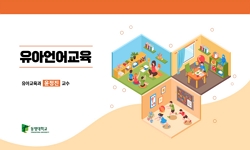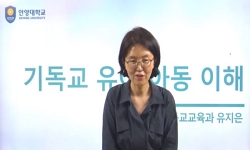본 연구의 목적은 아버지와 유아가 쉽고, 즐겁게 활동하는 놀이 활동을 구성하고, 아버지의 놀이 참여가 아버지의 양육행동과 유아의 정서지능에 미치는 영향에 대해 알아보는 것이다. 이로...
http://chineseinput.net/에서 pinyin(병음)방식으로 중국어를 변환할 수 있습니다.
변환된 중국어를 복사하여 사용하시면 됩니다.
- 中文 을 입력하시려면 zhongwen을 입력하시고 space를누르시면됩니다.
- 北京 을 입력하시려면 beijing을 입력하시고 space를 누르시면 됩니다.
아버지의 놀이참여가 아버지의 양육행동과 유아의 정서지능에 미치는 영향 = The Effects of Father's Play Participation on Father's Rearing Behavior and Children's Emotional Intelligence
한글로보기부가정보
국문 초록 (Abstract)
본 연구의 목적은 아버지와 유아가 쉽고, 즐겁게 활동하는 놀이 활동을 구성하고, 아버지의 놀이 참여가 아버지의 양육행동과 유아의 정서지능에 미치는 영향에 대해 알아보는 것이다. 이로써 아버지의 양육행동의 바람직한 방향을 제시하고 유아의 정서지능을 증진시킬 수 있는 기초자료를 제공하고자한다.
논문이 추구하는 목적을 체계적으로 실행하기 위해 다음과 같이 연구문제를 구성하였다.
연구 문제 1 : 아버지의 놀이참여가 아버지의 양육행동에 영향을 미치는가?
연구 문제 2 : 아버지의 놀이참여가 유아의 정서지능에 영향을 미치는가?
본 연구의 연구대상은 서울시에 위치하고 있는 Y어린이집의 선정하여 아버지교육 참가 신청서를 배부하였으며, 아버지교육에 참가 동의를 한 아버지와 원아 만2세, 3세, 4세, 5세 총 17쌍을 실험집단을 구성하고, 교육에 참여하지 않은 아버지와 유아 17쌍을 통제집단으로 구성하였다.
실험집단 아버지와 유아에게는 6주 동안 기관에서 주1회 놀이 교육을 실시하고, 가정에서 주2회 놀이 활동지를 작성하게 하였다. 반면 통제집단 아버지와 유아는 어떠한 처치도 이루어지지 않았다.
유아의 정서지능 검사를 측정하기 위해서 Mayer와 Salovey(1990)가 수정 제안한 정서지능의 개념모형을 토대로 김경회(1998)가 제작한 ‘교사용 유아 정서지능 평정척도’를 사용하였다.
놀이 참여를 통한 아버지의 양육행동을 알아보기 위해 Pease(1979)의 IPBI(Father from)〔Iowa Parent Behavior Inventory(Father from)〕를 노현미(1998)가 수정·번안한 것을 사용하였다.
본 연구의 결과는 다음과 같다.
첫째, 아버지의 양육행동에 있어서, 유아와의 놀이 활동에 참여한 실험집단 아버지가 그렇지 않은 아버지보다 높은 평균점수를 나타내었으며, 그 점수의 차이는 통계적으로 유익한 가치를 보여주고 있다. 따라서 아버지의 놀이참여가 아버지의 양육행동에 영향을 미친다고 볼 수 있다.
둘째, 유아의 정서지능 성취 면에 있어서, 아버지와의 놀이 활동에 참여한 실험집단 유아가 그렇지 않은 유아보다 높은 평균점수를 나타내었으며, 그 점수의 차이는 통계적으로 유익한 가치를 보여주고 있다. 따라서 아버지의 놀이참여가 유아의 정서지능에 영향을 미친다고 볼 수 있다.
이상의 연구 결과는 아버지의 놀이참여가 아버지의 양육행동과 유아의 정서지능에 긍정적인 영향을 미친다는 사실을 증명하고 있으며, 유아교육 현장과의 연계를 통한 아버지의 놀이참여의 중요성을 시사한다.
다국어 초록 (Multilingual Abstract)
The purpose of this study is to find out an easy and fun play that father and the child can enjoy together and to find out the effects of father's participation in the play on the father's rearing behavior and the child's emotional intelligence. Throu...
The purpose of this study is to find out an easy and fun play that father and the child can enjoy together and to find out the effects of father's participation in the play on the father's rearing behavior and the child's emotional intelligence. Through this study, basic material to suggest the desirable father's rearing behavior and the ways to enhance the child's emotional intelligence will be provided.
To achieve this goal systematically, the following questions were set.
1) Do father's play participation influence children's emotional intelligence?
2) Do father's play participation influence father's rearing behavior?
For the study object, Y nursery home located in Seoul has been selected and I distributed participation application form for parental education for fathers. Those fathers who have granted consents for the participation and their children in age 2, 3, 4 and 5 have composed 17 pairs of experiment groups. Other fathers and children who have not participated in the education composed 17 pairs of controlled groups.
The fathers and children of experiment group received play education once a week, for 6 weeks at the institution and drew out the play activity paper twice a week at their homes. On the other hand, the fathers and children of controlled group did not receive any treatment.
In order to conduct tests for the children's emotional intelligence, 'Teacher's Rating Standard for the Emotional Intelligence of Children', which was developed by Gyoung Hui, Kim (1998) based on the conception model of emotional intelligence modified by Mayer and Salovey (1990) was
used.
For analyzing the father's rearing behavior by participating in the play, Hyun Mi Noh's (1998) modified and adapted version of IPBI(Father from)〔Iowa Parent Behavior Inventory(Father from), originally developed by Pease (1979) was used.
This study obtained the following results.
First, the father's in terms of rearing behavior, the experiment group of which the fathers have participated in the play activities with the children showed higher average rate than the fathers who have not. Thus, it can be said that father's participation in the play has effects upon the rearing behavior of fathers.
Second, the children's capability in terms of emotional intelligence, the experiment group of which the children have participated in the play activities with the fathers showed higher average rate than the children who have not. Thus, it can be said that father's participation in the play has effects upon the emotional intelligence of children.
The result of this study testifies that the father's participation in the play has positive effects upon the emotional intelligence of the children and it suggests the importance of the father's participation in the play, which is closely connected with children's educational sites.
목차 (Table of Contents)
- I. 서 론 = 1
- 1. 연구의 필요성 및 목적 = 1
- 2. 연구문제 = 4
- 3. 용어의 정의 = 4
- II. 이론적 배경 = 6
- I. 서 론 = 1
- 1. 연구의 필요성 및 목적 = 1
- 2. 연구문제 = 4
- 3. 용어의 정의 = 4
- II. 이론적 배경 = 6
- 1. 아버지의 양육행동 = 6
- 1) 아버지 양육 행동의 변화 = 6
- 2) 아버지 양육 행동의 중요성 = 8
- 2. 놀이 참여 = 9
- 1) 놀이 개념 = 9
- 2) 놀이의 중요성 및 영향 = 10
- 3) 아버지의 놀이 참여 = 12
- 3. 정서지능 = 13
- 1) 정서지능 개념 = 13
- 2) 정서지능 구성요소 = 15
- 3) 놀이와 정서지능과의 관계 = 19
- Ⅲ. 연구방법 = 21
- 1. 연구대상 = 21
- 2. 연구도구 = 25
- 3. 연구절차 = 29
- 4. 자료분석 = 36
- Ⅳ. 연구 결과 및 해석 = 37
- 1. 아버지 놀이참여가 아버지 양육행동에 미치는 영향 = 37
- 2. 아버지의 놀이참여가 유아의 정서지능에 미치는 영향 = 43
- Ⅴ. 논의 및 결론 = 49
- ♧ 참고문헌 = 53
- ♧ Abstract = 57
- ♧ 부 록 = 60












